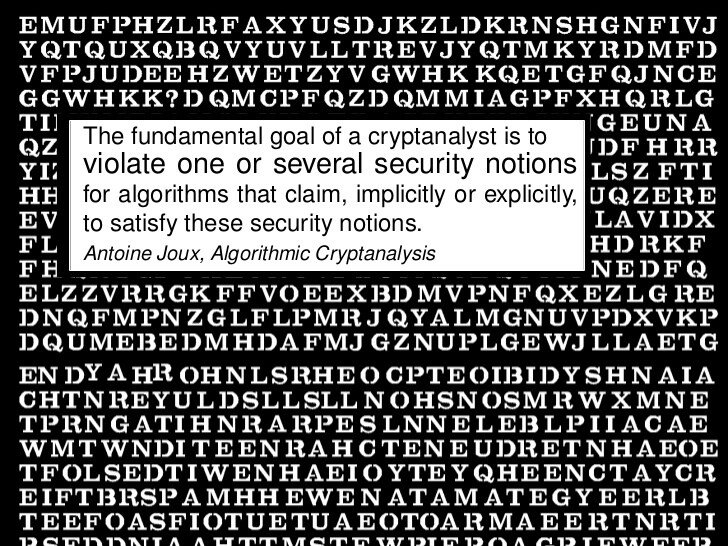Careers in Fintech Series 1: So you wanna be a Cryptographer? (job listings included)

The disruption in Financial Services caused by Fintech start ups and innovators has created new and interesting careers in the space. However, not all of these positions are exclusive to Fintech.
The purpose of this blog series is to introduce you to new careers that are worth considering if you’re looking for a promising new start in the job market; whether it’s in Fintech or otherwise. This series will also give you a glimpse in the day-to-day life of the position, including the challenges, educational requirements, natural aptitudes, salary expectations, etc.
Below is a list of careers we’ll cover in the series. Some are new and some are not so new but have gained new popularity in recent years. (Python software engineer). If you don’t see a career that you think should be mentioned and that’s new (within last 15 years), please feel free to comment and we'll cover it.
You’ll also notice that over the years, titles have changed with some roles such as Web Manager from previously named WebMaster. Let us know if you're tech job has gone under a "facelift" and now has a new title.
List of Careers to be profiled
- Crypto-analyst
- Cryptographer
- Distributed Systems Engineer
- Front-end Engineer (Javascript + Python)
- Back-end Engineer (Python)
- Blockchain Architect & Developers
- Scala Developer
- Full stack Engineer
- Digital Designer
- UX/UI Designer
- Web Manager
- Solutions Architect
- Product Designer
- Product Manager
- Digital Marketing SEO Specialists
- other suggestions made by you.

Today we’ll be profiling the following two careers:
Crypto-analyst and Cryptographer
Crypto-analyst: According to www.cyberdegrees.com a cryptoanalyst “analyzes and decrypts any type of hidden information ( ie. encrypted data, cipher texts, telecommunications protocols) in cryptographic security systems.
On the other hand, a Cryptographer “develops algorithms, ciphers and security systems to encrypt sensitive information.” Cyberdegree.com continues to define the Cryptographer as “ the code maker and the code breaker, the professional who ensures that private data regarding finance, national security and other important spheres are hiding from marauding cyber-terrorists.”
Sounds cool and James Bond-like right? So what will you be doing as a Crypto-analyst or Cryptographer anyway?
Roles and Responsibilities of a Crypto-analyst or Cryptographer
CyberDegrees.com gives us a breakdown of your overall roles and responsibilities:
• Protect important information from interception, copying, modification and/or deletion
• Evaluate, analyze and target weaknesses in cryptographic security systems and algorithms
• Design robust security systems to prevent vulnerabilities
• Develop statistical and mathematical models to analyze data and solve security problems
• Test computational models for reliability and accuracy
• Investigate, research and test new cryptology theories and applications
• Probe for weaknesses in communication lines (e.g. wireless network, secure telephone, cellphones, email, etc.)
• Ensure financial data (e.g. credit card, inter-bank, ATM, online transactions, etc.) are securely encrypted and accessible only to authorized users
• Ensure message transmission data (e.g. wireless network, secure telephone, cellphones, email, etc.) are not illegally accessed or altered in transit
• Decode cryptic messages and coding systems for military, political and/or law enforcement agencies
• Develop and update methods for efficient handling of cryptic processes
• Provide technical support to government, businesses and industry to solve security-related issues
• Advise colleagues and research staff on cryptical/mathematical methods and applications
Salary Expectations
This is a tough one. In our experience as headhunters, a lot of factors come in to play when it comes to salary compensation. Cybercareers.com sites as low as $60K (2014) for entry-level cryptographers and cryptoanalysts. http://www.cyberdegrees.org/jobs/cryptographer/
We think $60K salary was even low for 2014 but now that it’s 2016; the base salary is at least $75K-$85K for entry level individuals.
According to study.com the median salary for mathematicians---which cryptographers get lumped under-----was $102, 440 in 2013. http://study.com/articles/Cryptographer_Job_Description_Duties_and_Salary_Information.html
In our estimate, clients are willing to pay at least $90K-$100K base salary + equity for the right individual possessing the right set of cryptographic skills and experience. It’s a case by case basis for salaries with this profession.

A typical job description for a Crypto-analyst
Requirements
• Master’s degree or above in mathematics, computer science, information security or ideally, cryptography.
• Good understanding of methods and mechanics behind secure Internet communications.
• Fundamental understanding of computer programming. Experience with functional programming desirable.
• Knowledge specific to cryptocurrencies in not mandatory at the start, as the candidate is expected to spend 1 -2 months developing it.
• Some international travel required.
Responsibilities
• Report to the CEO and to the Chief Cryptographer.
• Communicate effectively with the software development team that is developing a software stack similar to Bitcoin and provide implementation advice.
• Develop a security scheme based on mathematical and cryptographic analysis of the software stack.
• Study, compare and develop various encryption models and algorithms and apply them to the software stack.
• Represent the company in academic and industry conferences and share technical information with the public.
• Contribute in peer reviewed publications.
As seen on https://iohk.io/careers/
Educational Requirements
According to Study.com here’s what you’ll need to embark on a career in Cryptography:
-Degree Level Bachelor's degree minimum; graduate degree most common
-Degree Fields Mathematics, computer science, linguistics or similar program
-Experience Five or more years of field experience may be required
-Key Skills Good communication, critical-thinking, and problem-solving skills, advanced computer skills, including the ability to use super computers, optical drives, and scientific, analytical, and programming software
Courtesy of http://study.com/articles/How_to_Become_a_Cryptologist_Step-by-Step_Career_Guide.html
Cryptography Courses Online
Here are a few links to Cryptography courses you can take online and some are free of charge:
https://www.coursera.org/learn/crypto
https://www.udacity.com/course/applied-cryptography--cs387
http://online.stanford.edu/course/cryptography
https://www.cybrary.it/course/cryptography/
http://saweis.net/crypto.html
Cryptography Job Listings (time sensitive links)
https://iohk.io/careers/
http://www.evernym.com/careers/
https://www.utwente.nl/en/organization/careers/vacancies/!/vacature/662159
https://www.ul-ts.com/about/careers/vacancies/professional/cryptographic-security-team-leader-basingstoke-uk/
http://careers.bankofamerica.com/job-detail/16024199/global/global/cryptographic-consultant
https://www.db.com/careers/en/prof/role-search/job_search_results.html?kid=global.generic.indeed.organic.jobad#JobOpeningId=43481
https://ins.jku.at/news/ins-job-posting (Teaching and Research)
http://serrahunter.gencat.cat/en (Teaching and Research)
We’re looking for cryptographers or cryptoanalysts to interview. We would like them to shed a bit more light on the day-to-day challenges, natural aptitudes and rewards of a career in cryptography. If you know of a cryptogenius or you’re one yourself, please contact Nako at careers@fintechrecruiters.com We’d love to share with the Steemit community what it’s really like to be a cryptographer.
About Fintech Recruiters www.fintechrecruiters.com
We are executive recruiters who specialize in the Financial Technology (Fintech) niche which includes Blockchain, payments, lending, financial crime, risk, compliance, fraud detection, governance software/ IT services talent in the US, Canada, London, Hong Kong, Singapore and key Fintech European cities.
Image from: http://www.slideshare.net/hashdays/hashdays-2011-jeanphilippe-aumasson-cryptanalysis-vs-reality)
Great resource you put together here!
Glad to know I'm not the only cybrarian here.